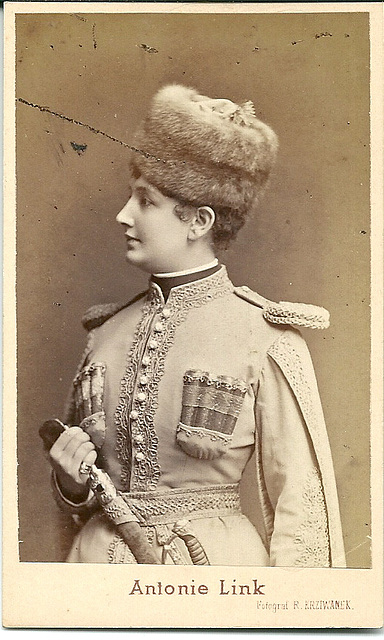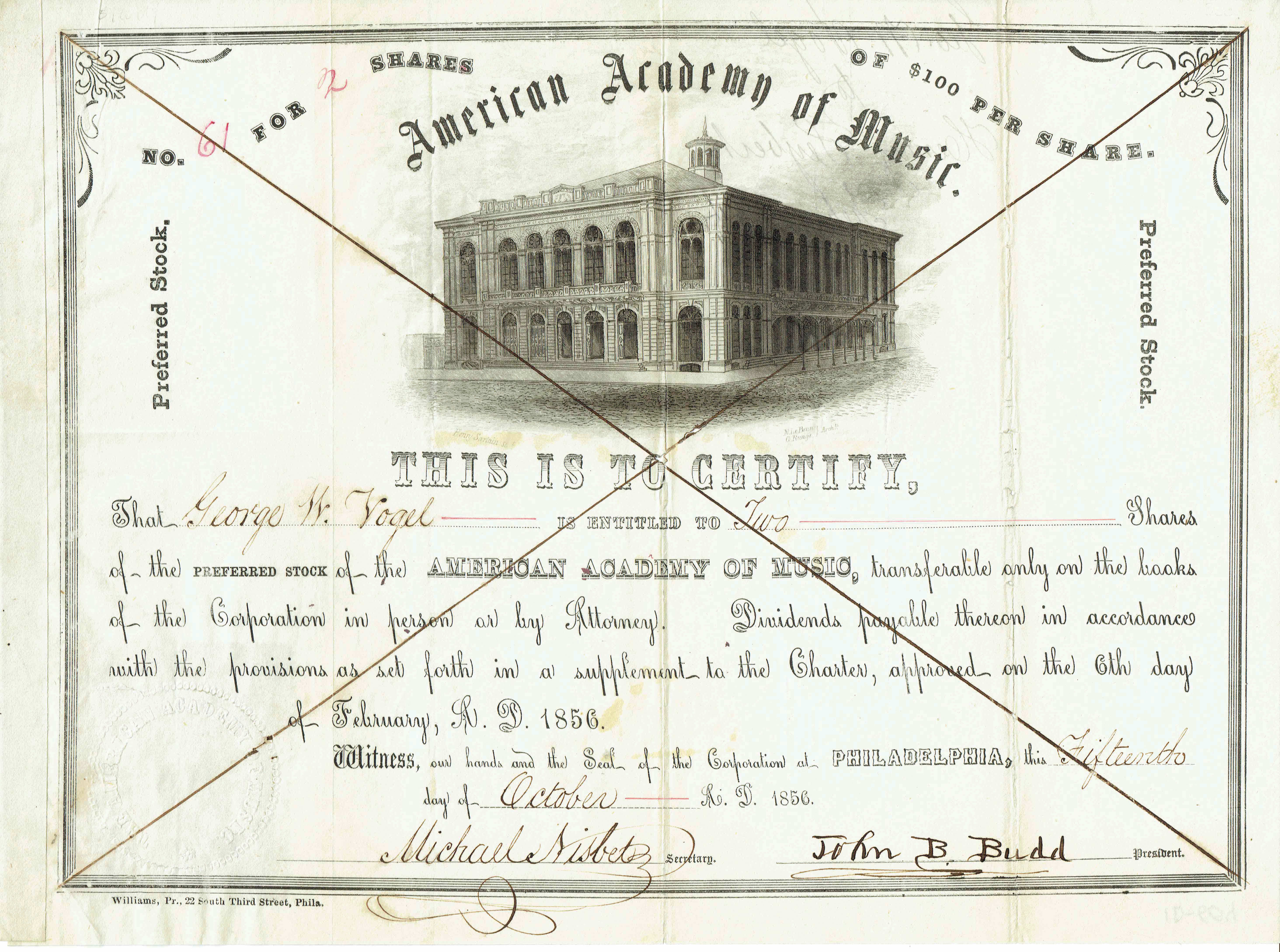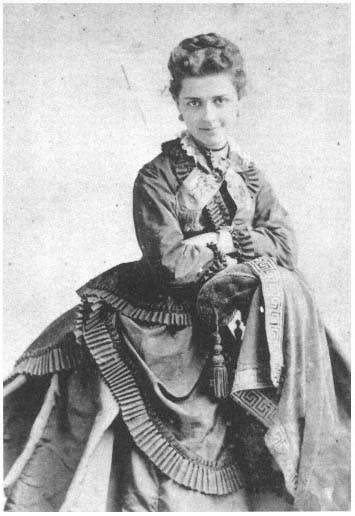|
Gustav Hinrichs
''This article is about the German-born American conductor and composer Gustav Hinrichs (1850–1942). For the German-born American chemist Gustav Hinrichs (1860–1923), see Gustavus Detlef Hinrichs.'' Gustav Ludwig Wilhelm Hinrichs (10 December 1850 - 26 March 1942) was a German-born American conductor and composer. He immigrated to the United States at the age of 19, where he became known especially as a conductor of opera in San Francisco, New York, and Philadelphia. His compositions include four operas, many songs and instrumental works, and musical scores for silent films, including the 1925 version of ''The Phantom of the Opera''. Career Gustav Hinrichs was born in Grabow near Ludwigslust, Germany to August Hinrichs and Sophie ''née'' Havekoss. He studied clarinet, violin, and piano with his father, and composition with Angelo Reisland and Eduard Marxsen in Hamburg. While still a teenager he began playing with the Hamburg State Opera orchestra. At the age of 19, in ... [...More Info...] [...Related Items...] OR: [Wikipedia] [Google] [Baidu] |
Gustavus Detlef Hinrichs
Gustavus Detlef Hinrichs (2 December 1836 – 14 February 1923) was a chemist and natural philosopher most widely known for his findings on periodic laws within the chemical elements. Life Hinrichs was born in 1836 in Lunden in the Duchy of Holstein, which at that time was under the rule of Denmark although it was simultaneously part of the German Confederation. He attended the local polytechnic school and the University of Copenhagen. During his schooling he published several articles and books, including descriptions of the magnetic field of earth and its interaction with the aether. Hinrichs graduated in 1860, between the First and Second Schleswig Wars. He emigrated later that year to the United States, settling initially in Davenport, Iowa, where he taught school, then in nearby Iowa City. In 1863 he was appointed a professor of natural philosophy, chemistry, and modern languages at the University of Iowa. He founded the first state weather and crop service in the United ... [...More Info...] [...Related Items...] OR: [Wikipedia] [Google] [Baidu] |
Fatinitza
''Fatinitza'' was the first full-length, three-act operetta by Franz von Suppé. The libretto by F. Zell (a pseudonym for Camillo Walzel) and Richard Genée was based on the libretto to ''La circassienne'' by Eugène Scribe (which had been set to music by Daniel Auber in 1861), but with the lead role of Wladimir, a young Russian lieutenant who has to disguise himself as a woman, changed to a Travesti (theatre)#Women in male roles, trousers role; in other words, a woman played the part of the man who pretended to be a woman. It premièred on 5 January 1876, at the Carltheater Vienna, and proved a huge success, running for more than a hundred performances, with the march "Vorwärts mit frischem Muth", proving a particular hit. The operetta as a whole is no longer in the popular repertory, but the overture is performed as a stand-alone piece. Background Viennese operetta sprang out of an attempt by Viennese composers to imitate Jacques Offenbach's works, after the highly successful ... [...More Info...] [...Related Items...] OR: [Wikipedia] [Google] [Baidu] |
Academy Of Music (Philadelphia)
The Academy of Music, also known as American Academy of Music, is a concert hall and opera house located at 240 S. Broad Street in Philadelphia, Pennsylvania. Its location is between Locust and Manning Streets in the Avenue of the Arts area of Center City. The hall was built in 1855–57 and is the oldest opera house in the United States that is still used for its original purpose. Known as the "Grand Old Lady of Locust Street," the venue is the home of the Philadelphia Ballet and Opera Philadelphia. It was also home to the Philadelphia Orchestra from its inception in 1900 until 2001, when the orchestra moved to the new Kimmel Center for the Performing Arts. The Philadelphia Orchestra still retains ownership of the Academy. The hall was designated a National Historic Landmark in 1962.Charles E. Shedd Jr., et al. (December 1979) , National Park Service and History The Academy of Music held an inaugural ball on January 26, 1857. At the time ''The New York Times'' described ... [...More Info...] [...Related Items...] OR: [Wikipedia] [Google] [Baidu] |
Tannhäuser
Tannhäuser (; gmh, Tanhûser), often stylized, "The Tannhäuser," was a German Minnesinger and traveling poet. Historically, his biography, including the dates he lived, is obscure beyond the poetry, which suggests he lived between 1245 and 1265. His name becomes associated with a "fairy queen"-type folk ballad in German folklore of the 16th century. Historical Tannhäuser The most common tradition has him as a descent from the ''Tanhusen'' family of Imperial ''ministeriales'', documented in various 13th century sources, with their residence in the area of Neumarkt in the Bavarian Nordgau. These sources identify him as being descended of an Old Styrian noble family. The illustrated ''Codex Manesse'' manuscript (about 1300–1340) depicts him clad in the Teutonic Order habit, suggesting he might have fought in the Sixth Crusade led by Emperor Frederick II in 1228/29. For a while, Tannhäuser was an active courtier at the court of the Austrian duke Frederick the Warlike, wh ... [...More Info...] [...Related Items...] OR: [Wikipedia] [Google] [Baidu] |
Richard Wagner
Wilhelm Richard Wagner ( ; ; 22 May 181313 February 1883) was a German composer, theatre director, polemicist, and conductor who is chiefly known for his operas (or, as some of his mature works were later known, "music dramas"). Unlike most opera composers, Wagner wrote both the libretto and the music for each of his stage works. Initially establishing his reputation as a composer of works in the romantic vein of Carl Maria von Weber and Giacomo Meyerbeer, Wagner revolutionised opera through his concept of the ''Gesamtkunstwerk'' ("total work of art"), by which he sought to synthesise the poetic, visual, musical and dramatic arts, with music subsidiary to drama. He described this vision in a series of essays published between 1849 and 1852. Wagner realised these ideas most fully in the first half of the four-opera cycle ''Der Ring des Nibelungen'' (''The Ring of the Nibelung''). His compositions, particularly those of his later period, are notable for their complex textures, ... [...More Info...] [...Related Items...] OR: [Wikipedia] [Google] [Baidu] |
Music Of Philadelphia
The city of Philadelphia, Pennsylvania, is home to a vibrant and well-documented musical heritage, stretching back to colonial times. Innovations in classical music, opera, R&B, jazz, soul, and rock have earned the music of Philadelphia national and international renown. Philadelphia's musical institutions have long played an important role in the music of Pennsylvania, as well as a nationwide impact, especially in the early development of hip hop music. Philadelphia's diverse population has also given it a reputation for styles ranging from dancehall to Irish traditional music, as well as a thriving classical and folk music scene. The Philadelphia Orchestra's third conductor, Leopold Stokowski, championed American classical music of the 20th century, and on tour, in recordings, and notably in Walt Disney's 1940 animated film ''Fantasia'', brought the traditional and modern classical repertoire to a broad American listening public for the first time. The Curtis Institute o ... [...More Info...] [...Related Items...] OR: [Wikipedia] [Google] [Baidu] |
John F
John is a common English name and surname: * John (given name) * John (surname) John may also refer to: New Testament Works * Gospel of John, a title often shortened to John * First Epistle of John, often shortened to 1 John * Second Epistle of John, often shortened to 2 John * Third Epistle of John, often shortened to 3 John People * John the Baptist (died c. AD 30), regarded as a prophet and the forerunner of Jesus Christ * John the Apostle (lived c. AD 30), one of the twelve apostles of Jesus * John the Evangelist, assigned author of the Fourth Gospel, once identified with the Apostle * John of Patmos, also known as John the Divine or John the Revelator, the author of the Book of Revelation, once identified with the Apostle * John the Presbyter, a figure either identified with or distinguished from the Apostle, the Evangelist and John of Patmos Other people with the given name Religious figures * John, father of Andrew the Apostle and Saint Peter * Pope Jo ... [...More Info...] [...Related Items...] OR: [Wikipedia] [Google] [Baidu] |
Jeannette Thurber
Jeannette Thurber (also known as Jeannette Meyers Thurber; January 29, 1850 in Delhi, New York – January 2, 1946 in Bronxville, New York) was amongst the first major patrons of classical music in the United States. Thurber established the National Conservatory of Music of America in 1885—the first of its kind and an endeavor that some say ushered in the first orchestral music with a distinctively American sound. But in a very radical stance for the day, Thurber championed the rights of women, people of color and the handicapped to attend her school, sometimes on full scholarship. This was 1885—not too long after the Civil War—and her school was racially integrated, promoted women, and had an inclusive stance toward the handicapped. Thurber founded the school in part because of her belief that a nation should cultivate its own unique music—an unusual stance when the prevailing attitude was that all cultured art, especially orchestral music, came from Germany or Italy. Whil ... [...More Info...] [...Related Items...] OR: [Wikipedia] [Google] [Baidu] |
Theodore Thomas (conductor)
Theodore Thomas (October 11, 1835January 4, 1905) was a German-American violinist, conductor, and orchestrator of German birth. He is considered the first renowned American orchestral conductor and was the founder and first music director of the Chicago Symphony Orchestra (1891–1905). Biography Early life Theodore Christian Friedrich Thomas was born in Esens, Germany, on October 11, 1835, the son of Johann August Thomas. His mother, Sophia, was the daughter of a physician from Göttingen. He received his musical education principally from his father, who was a violinist of ability, and at the age of six years he played the violin in public concerts. His father was the town ''Stadtpfeifer'' (bandleader) who also arranged music for state occasions. Career Thomas showed interest in the violin at an early age, and by age ten, he was practically the breadwinner of the family, performing at weddings, balls, and even in taverns. By 1845, Johann Thomas and his family, convinced t ... [...More Info...] [...Related Items...] OR: [Wikipedia] [Google] [Baidu] |
American Opera Company
The American Opera Company was the name of four different opera companies active in the United States. The first company was a short-lived opera company founded in New York City in February, 1886 that lasted only one season. The second company grew out of the Eastman School of Music in Rochester, New York, and was active from the mid-1920s up until 1930 when it went bankrupt not too long after the Wall Street Crash of 1929. The third opera company was a short lived company located in Trenton, New Jersey that was active in 1937. The fourth and last opera company was actively performing in Philadelphia from 1946 through 1950. Jeannette Thurber's American Opera Company The first American Opera Company was founded in 1886 by well known arts patron Jeannette Meyers Thurber who had just founded the National Conservatory of Music of America a few months earlier. Based in New York City, the American Opera Company was under the musical direction of Theodore Thomas, with Gustav Hinrichs and ... [...More Info...] [...Related Items...] OR: [Wikipedia] [Google] [Baidu] |
Gustav Hinrichs (Musical Courier 15
Gustav Ludwig Wilhelm Hinrichs (10 December 1850 - 26 March 1942) was a German-born American conductor and composer. He immigrated to the United States at the age of 19, where he became known especially as a conductor of opera in San Francisco, New York, and Philadelphia. His compositions include four operas, many songs and instrumental works, and musical scores for silent films, including the 1925 version of ''The Phantom of the Opera''. Career Gustav Hinrichs was born in Grabow near Ludwigslust, Germany to August Hinrichs and Sophie ''née'' Havekoss. He studied clarinet, violin, and piano with his father, and composition with Angelo Reisland and Eduard Marxsen in Hamburg. While still a teenager he began playing with the Hamburg State Opera orchestra. At the age of 19, in order to avoid military service, Hinrichs emigrated to the United States. He sailed from Hamburg via Le Havre on SS ''Silesia'' and arrived in New York on 4 April 1870. He then traveled by train across th ... [...More Info...] [...Related Items...] OR: [Wikipedia] [Google] [Baidu] |
San Francisco Symphony
The San Francisco Symphony (SFS), founded in 1911, is an American orchestra based in San Francisco, California. Since 1980 the orchestra has been resident at the Louise M. Davies Symphony Hall in the city's Hayes Valley neighborhood. The San Francisco Symphony Youth Orchestra (founded in 1981) and the San Francisco Symphony Chorus (1972) are part of the organization. Michael Tilson Thomas became the orchestra's music director in 1995, and concluded his tenure in 2020 when Esa-Pekka Salonen took over the position. Among the orchestra's awards and honors are an Emmy Award and 15 Grammy Awards in the past 26 years. History The early years The orchestra's first concerts were led by conductor-composer Henry Hadley. There were sixty musicians in the Orchestra at the beginning of their first season. The first concert included music by Wagner, Tchaikovsky, Haydn, and Liszt. There were thirteen concerts in the 1911–1912 season, five of which were popular music. In 1915, Alfred He ... [...More Info...] [...Related Items...] OR: [Wikipedia] [Google] [Baidu] |





.jpg)